The Barnstable Patriot
Barnstable Board of Health, Town Council leadership at odds over sewering, development
Irresponsible, premature, ill-advised, and inappropriate.
Those were some of the fiery reactions to a proposal to limit sewer capacity in town at the expense of interim regulations designed to protect the town’s saltwater estuaries.
“This request did not come from the Board of Health,” Chairman Paul Canniff said at the Barnstable Board of Health’s Oct. 23 meeting.
Rather, Canniff said he received a terse call from Town Council President Eric Steinhilber directing him to call a public hearing. Specifically, Canniff said he was told to “effectively remove nitrogen loading regulations” apart from the Craigville Beach Zoning District.
Having seen a legal notice about the hearing, the Association to Preserve Cape Cod wrote to Canniff requesting that the health board take no further action.
Adopted in 2008, the interim regulations prohibit the construction of individual sewage disposal systems within Barnstable’s watersheds that have excessive nitrogen levels. Steinhilber asked the health board to modify the regulation by limiting its applicability to the Craigville Beach Zoning District.
“APCC strongly recommends shelving this (amendment) until a comprehensive wastewater management plan can be adopted,” Canniff said. “The main purpose of this regulation is protection of our groundwater, which provides us with our drinking water. To get rid of regulations that protect the groundwater is ill-advised. The removal would allow a lot more development.”
Councilor Jessica Rapp-Grassetti called the proposal premature and wholly inappropriate.
“Nothing appropriate has been implemented to reduce nitrogen,” she said. “The reality is very little has been implemented, and I urge the board to stay on the regulation. We should talk a lot less about this issue and do a lot more.”
But board member John Norman and James Crocker, the vice president of town council, disagreed.
“This interim regulation has handcuffed a lot of (new development) that we wanted to do,” Norman said. “The town manager (Mark Ells) has made it clear: there are things we need to do going forward that this regulation is hindering.”
Moreover, the quality of drinking water throughout town is above-standard, Norman added.
“I fail to see the public health issue that’s being affected by our regulating sewering systems,” he said. “The Town of Barnstable has $16 million in the bank as a funding mechanism (for new sewering). It’s on the town leadership, not the board of health.
“When you hinder a community to building one- and two-bedroom housing, our children can’t afford to live here on the Cape,” he added. “It’s time to sunset and move forward.”
Councilor Crocker concurred with Norman, saying, that everyone present has the same goal: protecting Barnstable’s water supply.
“The issue is how to move forward,” Crocker said. “What I hope we’re here to discuss today is who should take the lead. The lead, I believe, belongs with the council, town manager, and staff. Who’s funding the testing? The council is.”
However, Zenas Crocker, executive director of Barnstable Clean Water Coalition, said a temporary regulation lasting over 10 years deserved more discussion.
“Eric called the regulations ‘somewhat arbitrary, blanket restrictions. They unnecessarily hinder other necessary priorities, such as housing,’ ” Zenas Crocker said, reading into the record correspondence between him and Steinhilber. “We (BCWA) cannot support this. Any proposed change should be part of our comprehensive water management plan—when implemented, not just planned. Our goal is to remove nitrogen and restore drinking water to the high quality that the community demands and expects.”
Board of Health Member Tom Lee noted that alternate technologies proposed to treat wastewater in Barnstable remain in pilot testing mode, but that this was a good place to start the conversations about moving forward over the next three to five years.
At the recommendation of Barnstable Town Attorney Ruth Weil, the health board voted unanimously to withdraw the proposal from consideration without prejudice. The matter will be put on the agenda for the health board’s next meeting on Wednesday, Nov. 27, at 3 p.m.
